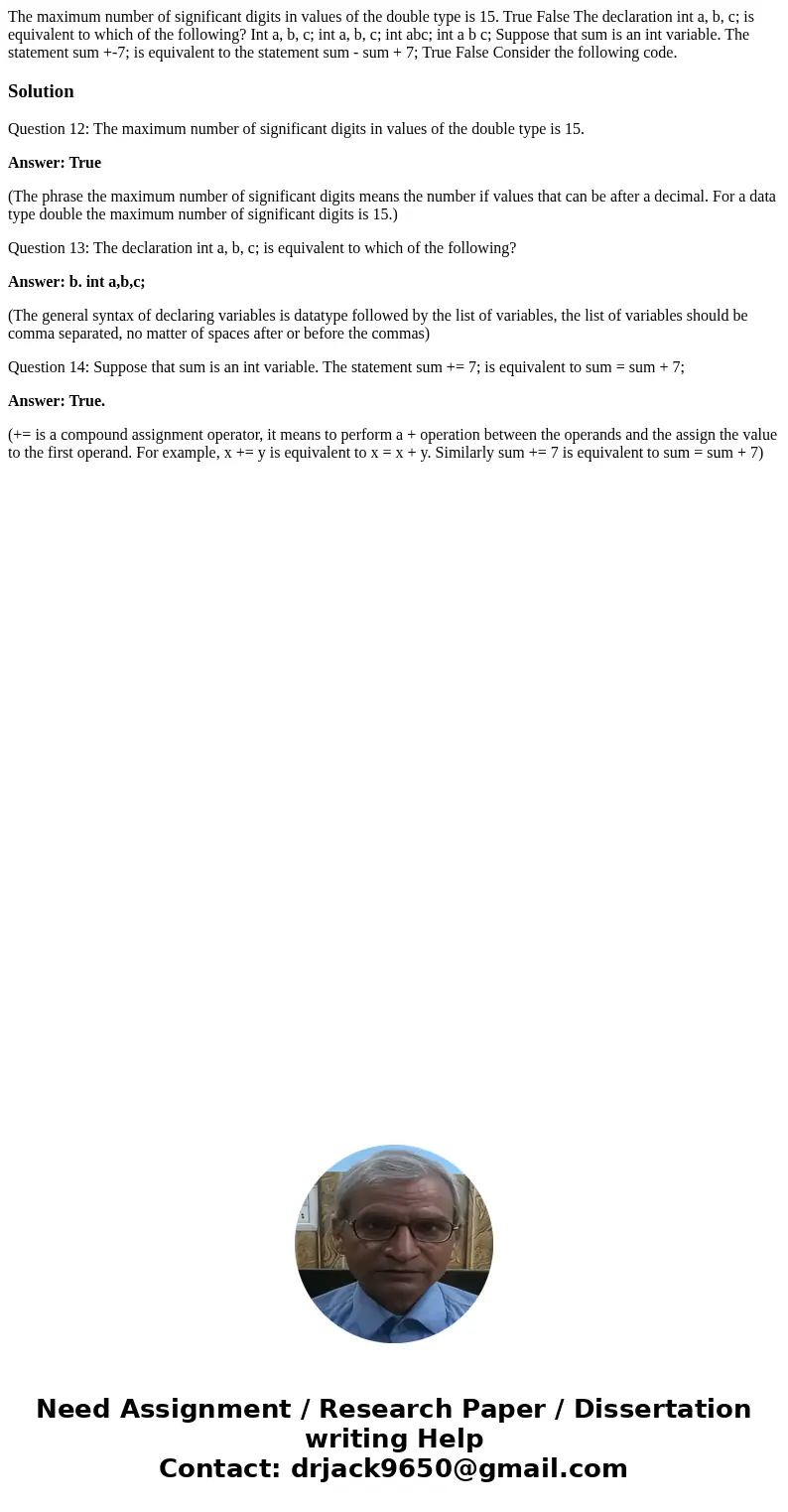The maximum number of significant digits in values of the do
Solution
Question 12: The maximum number of significant digits in values of the double type is 15.
Answer: True
(The phrase the maximum number of significant digits means the number if values that can be after a decimal. For a data type double the maximum number of significant digits is 15.)
Question 13: The declaration int a, b, c; is equivalent to which of the following?
Answer: b. int a,b,c;
(The general syntax of declaring variables is datatype followed by the list of variables, the list of variables should be comma separated, no matter of spaces after or before the commas)
Question 14: Suppose that sum is an int variable. The statement sum += 7; is equivalent to sum = sum + 7;
Answer: True.
(+= is a compound assignment operator, it means to perform a + operation between the operands and the assign the value to the first operand. For example, x += y is equivalent to x = x + y. Similarly sum += 7 is equivalent to sum = sum + 7)

 Homework Sourse
Homework Sourse